In photos: National Day for Truth and Reconciliation at McMaster
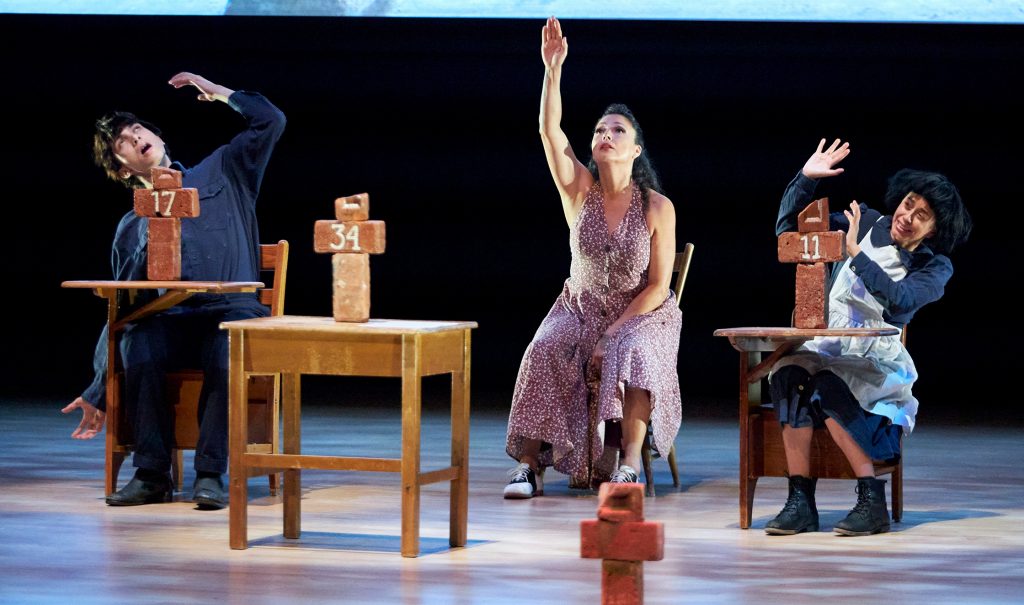
McMaster Chancellor Santee Smith/Tekaronhiáhkhwa and dancers Montana Summers and Katie Couchie perform a scene from the award-winning production, The Mush Hole, as part of a special event to mark National Day for Truth and Reconciliation.
The experiences and trauma of residential school survivors were brought to life in a powerful and visceral way through a special event that included scenes from the critically acclaimed production, The Mush Hole, by McMaster Chancellor Santee Smith/Tekaronhiáhkhwa and members of the Kaha:wi Dance Theatre.
Nearly 300 members of the McMaster community gathered at L.R. Wilson Hall for a performance of The Mush Hole: Truth Embodied, which explored the history and ongoing legacy of Canada’s residential school and shed light on what Indigenous children suffered and lost while forced to attend residential schools.
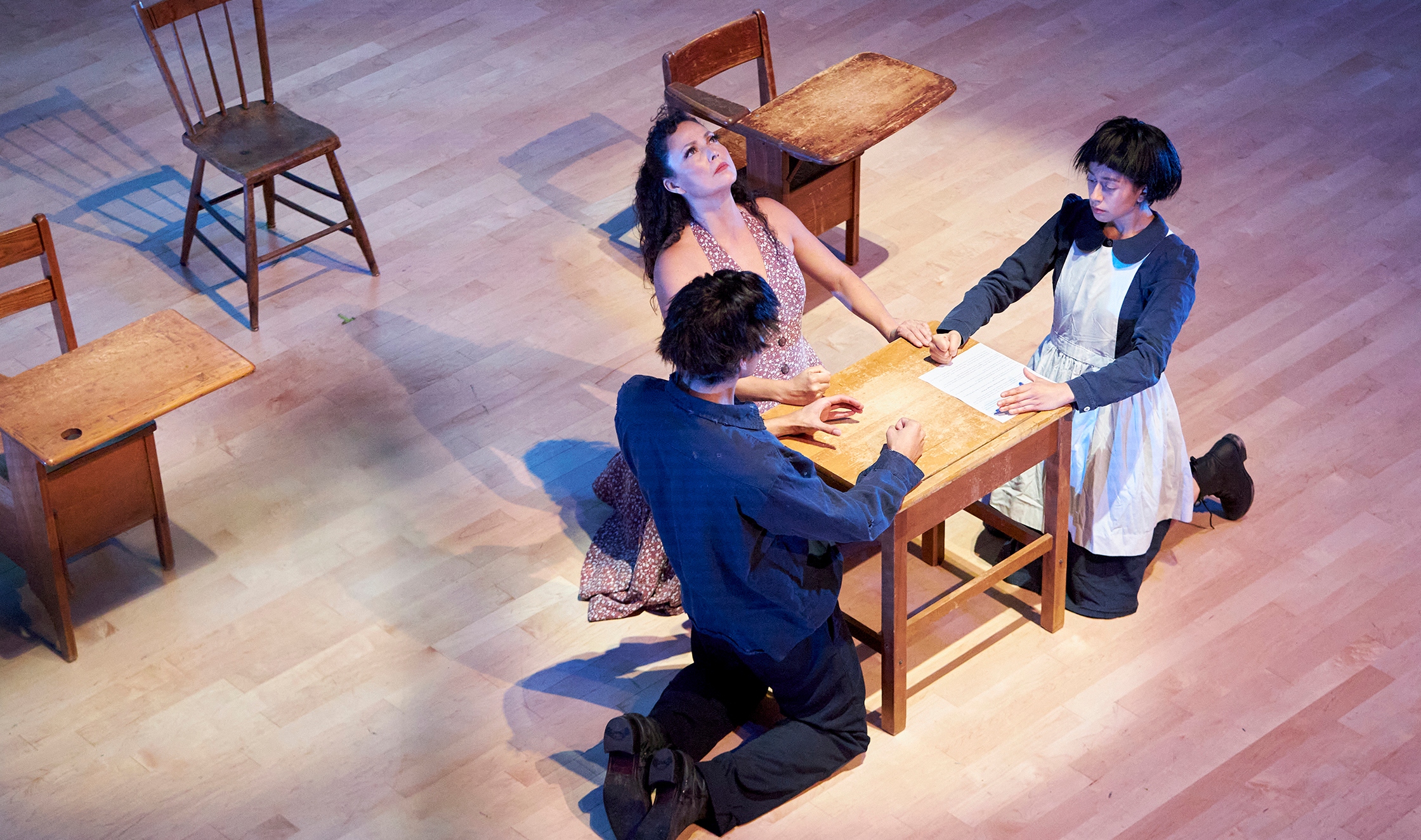
Smith, the founding and managing artistic director of Kaha:wi Dance Theatre, a multidisciplinary artist, producer, curator and 2023 Order of Canada appointee, was accompanied by dancers Montana Summers and Katie Couchie.
In addition to performing scenes from The Mush Hole, Smith, Summers and Couchie shared the stories of the residential school survivors that inspired the production, spoke about the process of expressing those stories through dance, and also shared a video performance celebrating the reclamation of traditional cultures now taking place in many Indigenous communities across Canada.
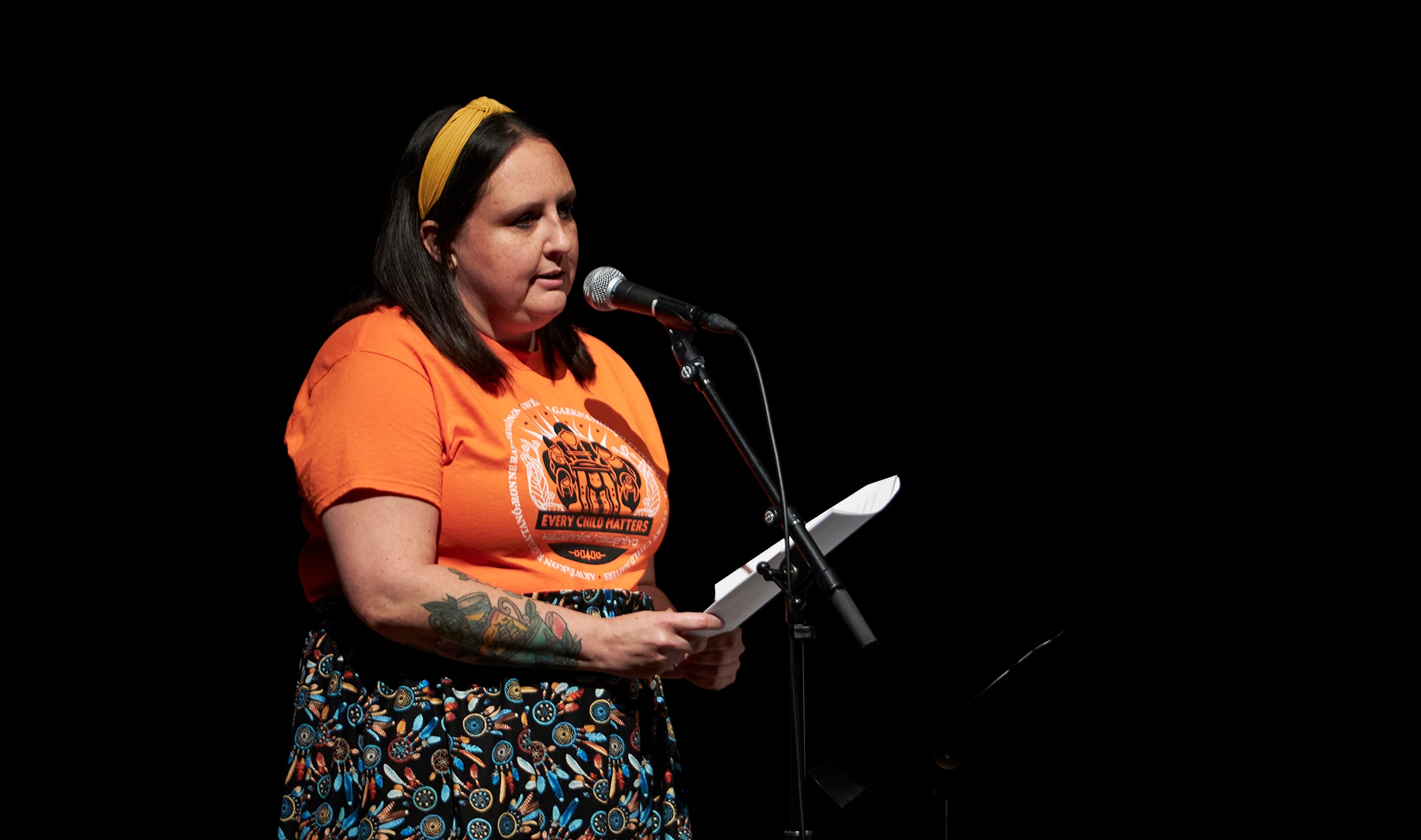
The event was part of a week of commemorations, programming and resources on campus and in the community to mark National Day for Truth and Reconciliation.
Here are some of the other events and stories that were shared throughout the week, as well as opportunities for the McMaster community to continue engaging in Truth and Reconciliation:
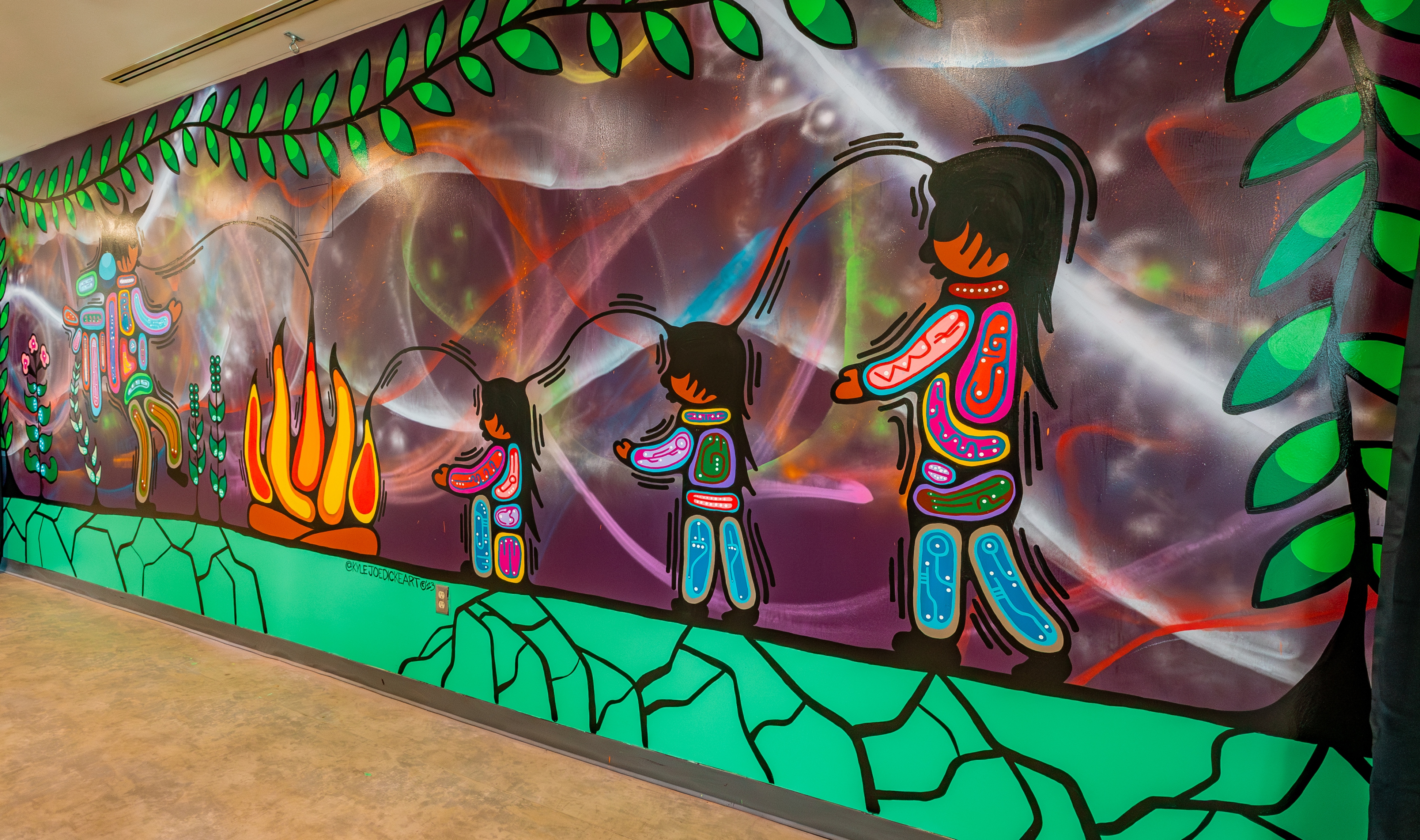
The passing of knowledge to the younger generation is captured in a mural by Indigenous artist, Kyle Joedicke, that was unveiled on the eve of National Day for Truth and Reconciliation.
The McMaster community is welcome and encouraged to visit the mural, which is located on the fourth floor of McMaster’s Integrated Applied Health Sciences building, and provides opportunities for reflection year-round as students, faculty, staff and community members move through the space.

Joedicke, a Cayuga (Turtle Clan) artist from Six Nations of The Grand River, says the passing of knowledge is at the heart of the artwork.
“At its core, an elder morphs into an eagle, which represents love as per the Seven Grandfather teachings. Beside this transformation are abstract portrayals of three sacred medicines: tobacco, sage and sweetgrass — used in ceremonies either as offerings to the creator or for purification,” he said.
“The backdrop resembles the Dish With One Spoon Wampum, denoting a pact to share land and resources harmoniously among Indigenous and non-Indigenous people. The mural’s outer edge is adorned with vines showcasing abstract flora, underscoring our intrinsic bond with nature.”
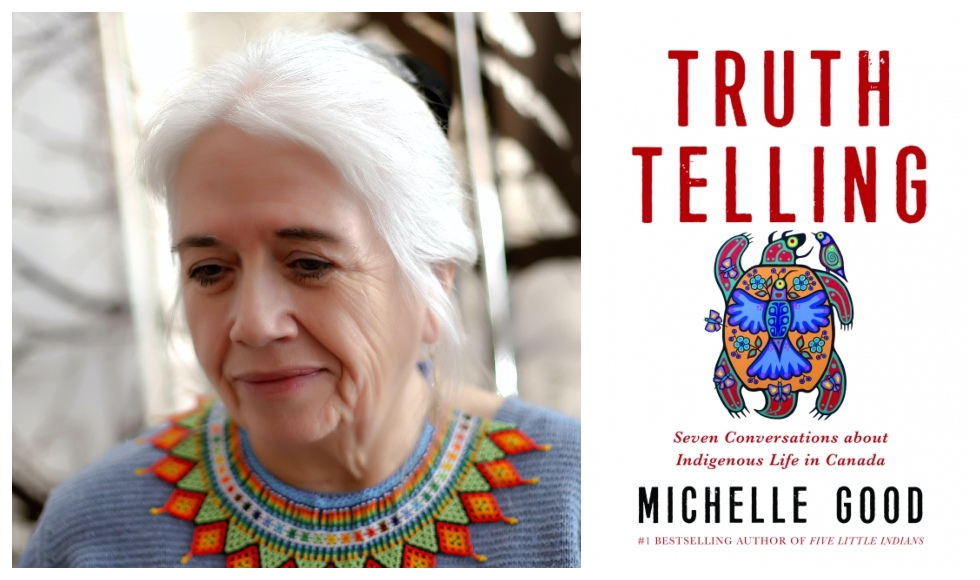
Last week marked the official launch of The McMaster Indigenous Studies Community Book Club, intended to bring the campus community together, spark conversations about the experiences of Indigenous people in Canada and explore themes of Truth and Reconciliation.
Organized by the Indigenous Studies Department, the book club is open to all McMaster students, staff and faculty and will include both virtual and in-person discussions. It was created to encourage open dialogue, promote discussion, and provide an opportunity for learning and growth among all participants.
The book club will run throughout the fall term and will feature the book Truth Telling: Seven Conversations about Indigenous Life in Canada, a collection of essays by Indigenous activist and award-winning novelist, Michelle Good, who will also be taking part in a virtual book club discussion.
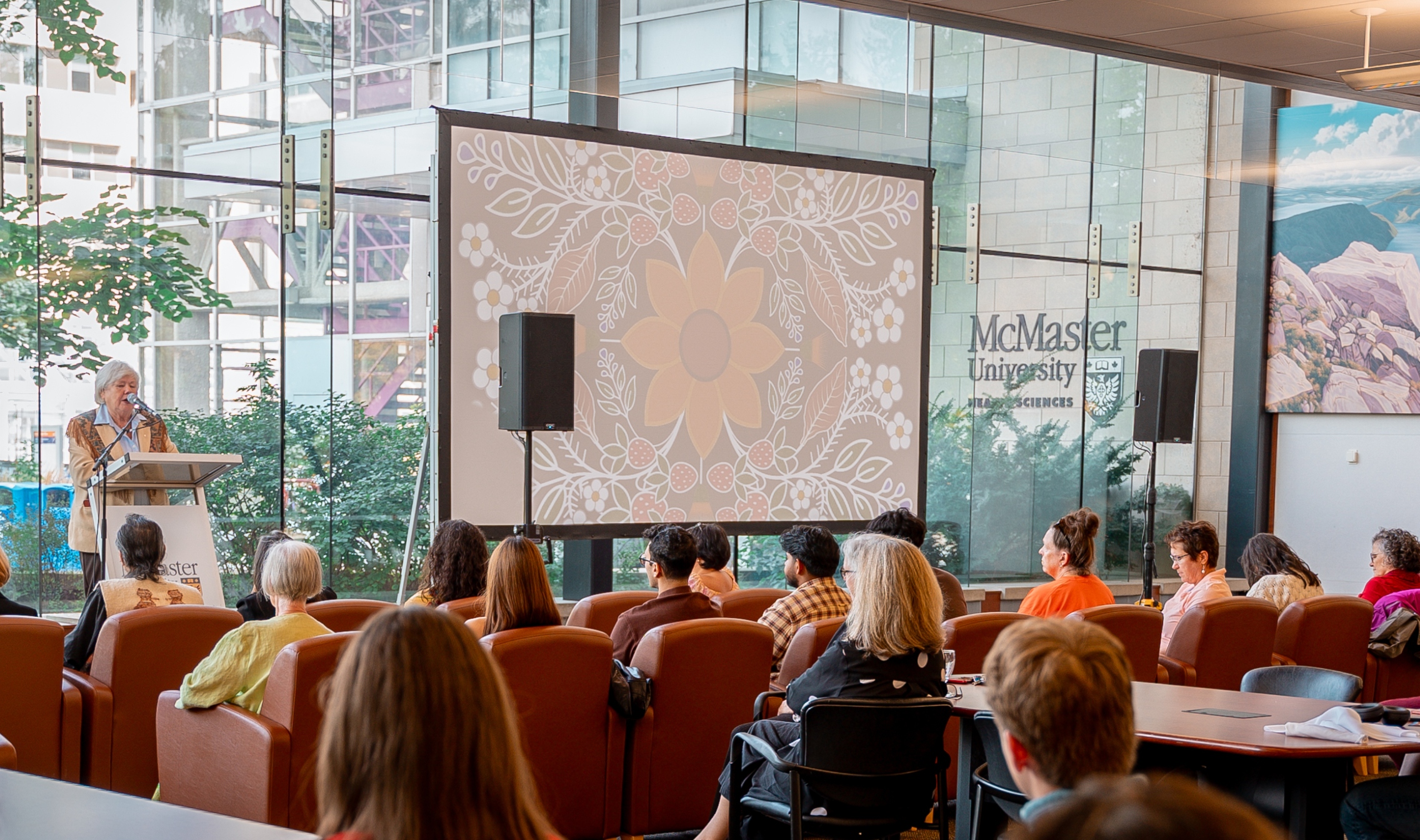
Coming Full Circle: Roads to Reconciliation was hosted by the Indigenous Health Learning Lodge on Sept. 25 to honour Pat Mandy and Tom Dignan (1942-2021) for their contributions toward reconciliation through their lives and actions.
Mandy is the recipient of an honorary doctorate from the School of Nursing. Dignan is the first Indigenous graduate of McMaster University’s medical school and a member of the Canadian Medical Hall of Fame. A sketch dedicated to him can be seen on the second floor of the Health Sciences Centre outside of the School of Nursing.
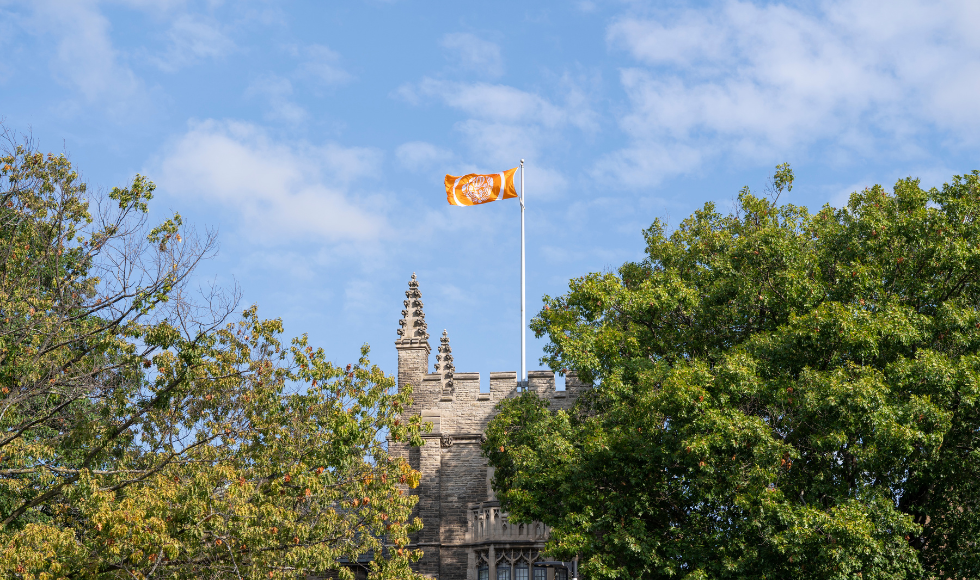
In recognition of National Day for Truth and Reconciliation, The Survivors’ Flag was flown over University Hall from Sept. 25 to Sept. 30.
The Survivors’ Flag is an expression of remembrance, meant to honour residential school survivors and all the lives and communities impacted by the residential school system in Canada. Each element depicted on the flag was carefully selected by survivors from across Canada, who were consulted in the flag’s creation.

